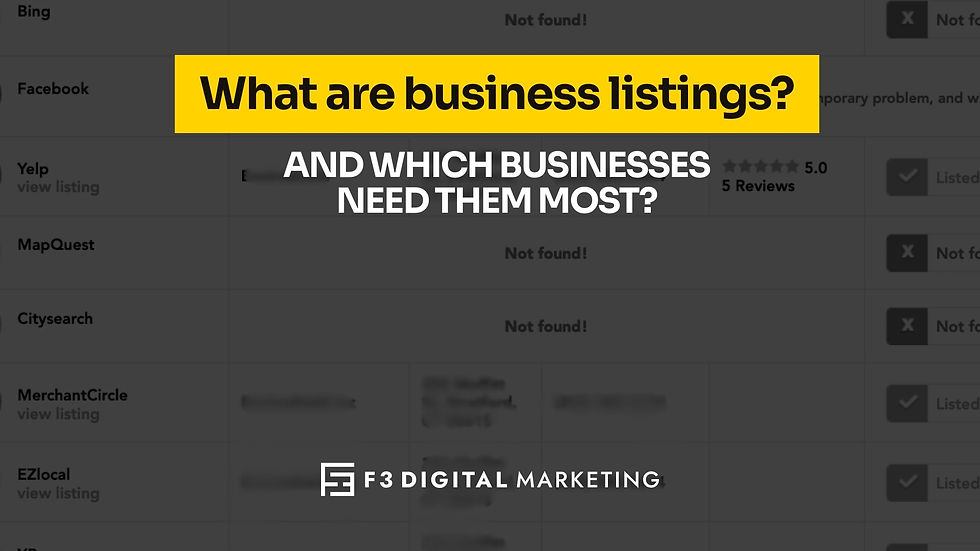How AI Is Changing SEO (And What Businesses Should Do About It)
- F3 Digital Marketing
- Jun 30, 2025
- 2 min read
Updated: Jul 10, 2025

The Search Landscape Is Shifting
The way people search online is evolving fast. With tools like ChatGPT, Google’s Search Generative Experience (SGE), Bing Copilot, and Perplexity AI, search engines aren’t just serving up links—they're generating direct answers. This shift is fundamentally changing what it means to be "searchable" and challenges businesses to rethink how they show up online.
If you're a small business owner or marketing manager, this change isn't something you can ignore. AI-powered search is here—and it’s already affecting visibility and traffic.
What Is AI-Powered Search?
In traditional search, users type a question and receive a list of blue links to choose from. But AI-powered search, like Google SGE or Perplexity, uses machine learning to understand, summarize, and generate responses from across the web.
Instead of 10 results, users may only see 1–3 sources referenced directly in an AI-generated answer.
Why This Matters for SEO:
Less visibility for lower-ranking websites
More weight on content quality, structure, and authority
Greater need for clarity, formatting, and credibility
Key Differences in AI Search vs. Traditional SEO
1. Fewer Results, Higher Competition
AI may only show a few sources instead of ten results. That means being in the top 3 is more important than ever.
2. Summarization Over Clicks
AI is trained to extract answers from your content. If your page isn’t structured clearly, it may get skipped entirely.
3. EEAT Matters More
Google’s algorithm—and its generative engine—prioritize Experience, Expertise, Authority, and Trustworthiness (EEAT).
4. Structured Data Is a Must
Without schema markup and well-labeled content (H1, H2, etc.), your site may be invisible to AI crawlers.
What Should Businesses Do to Stay Visible?
1. Audit Your Website for Structure
Use clear headers (H1, H2, H3), short paragraphs, and bullet points. This helps both search engines and users quickly understand your content.
2. Implement Schema Markup
Use structured data to label your services, location, reviews, and more. This helps AI engines know what your business does and who it's for.
3. Focus on Authoritativeness
Publish content that reflects your expertise, includes real data or insights, and builds credibility.
4. Update & Refresh Old Content
Generative AI prefers fresh, up-to-date content. Go back and update older posts with newer stats, better structure, and clearer messaging.
5. Optimize for Local & Long-Tail Keywords
AI-powered search can pull content based on very specific queries. Optimizing for “near me” or service + city terms helps you show up for relevant users.
The Bottom Line
SEO isn’t dead—it’s just evolving. Businesses that continue to invest in SEO—but with an eye on the future—will have a massive advantage as generative AI becomes the norm.
Book a Free SEO Discovery Call
At F3 Digital Marketing, we help businesses bridge the gap between traditional SEO and AI-driven discovery. Let’s talk about how to future-proof your online presence.




Comments